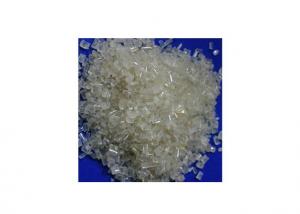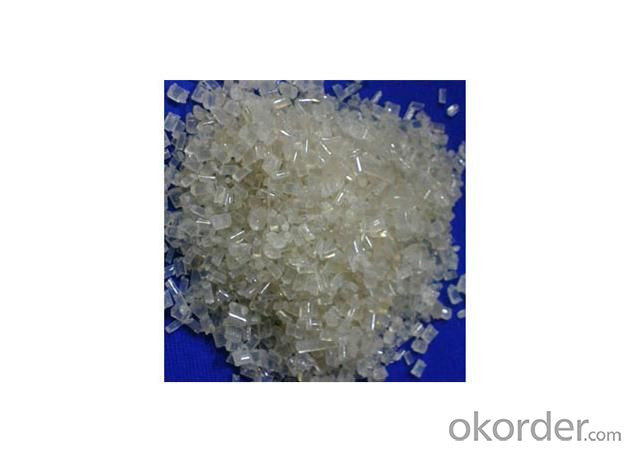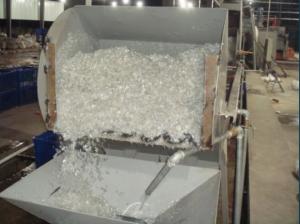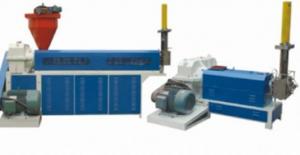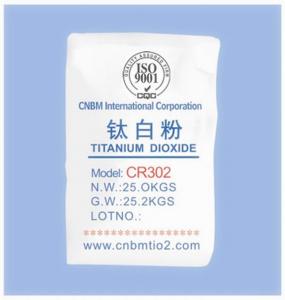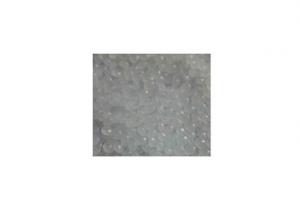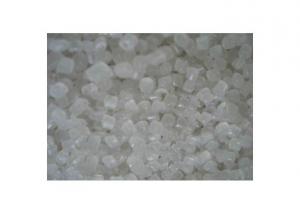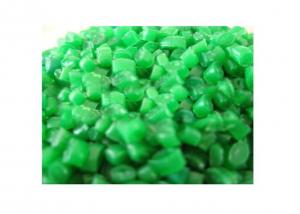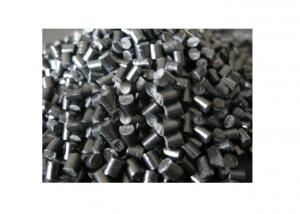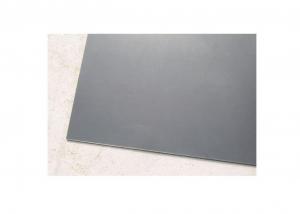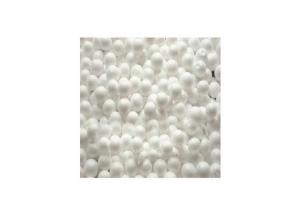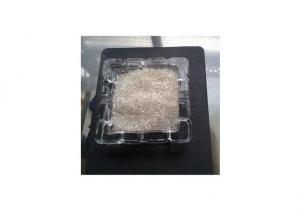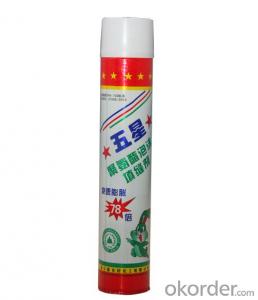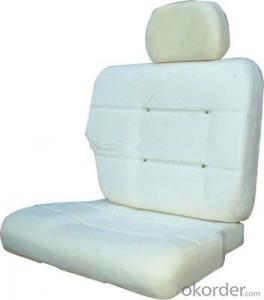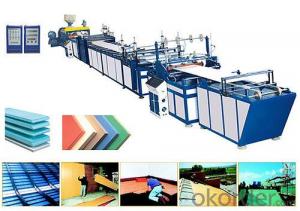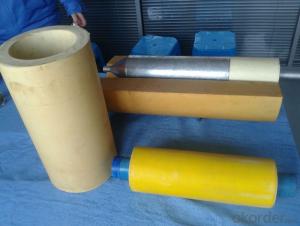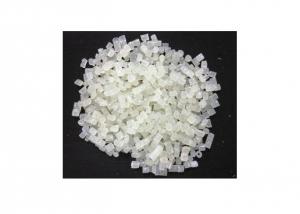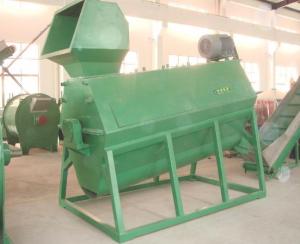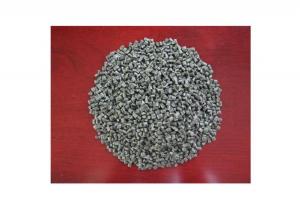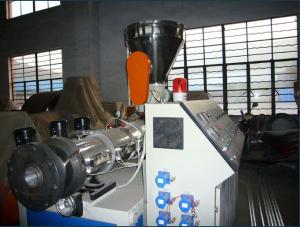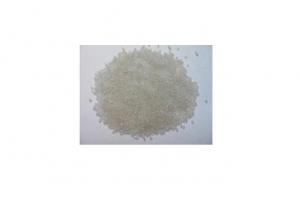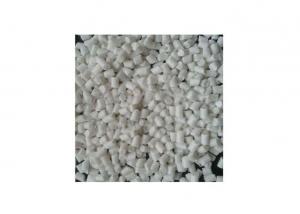Expandable Polystyrene Modeling Foam Blocks
- Loading Port:
- China Main Port
- Payment Terms:
- TT or LC
- Min Order Qty:
- 23 Tons m.t.
- Supply Capability:
- 2000 Tons per Month m.t./month
OKorder Service Pledge
OKorder Financial Service
You Might Also Like
Detailed Product Description
1.Building Material EPS Foam Block/Blocks with Water & Fire Proof
2.light, low price, easy to molding
3.free sample
We are manufacturer .In the field of chemical raw materials,we are professional
1.Characteristics:
Good flame-retardant, good frothing good preserving, good binding and low heat-conducting rate.Oxygen index over 30(testing after 7-14 days flowing)
2.Application:
This Flame retardant grade EPS can be
used as building-materials, materials for heat preservation, thermal insulation and for packing precision instruments
used for fire board, eps blocks, fish box production etc.
3.Storage:
The EPS series products of our company need to be put on the place where it is cool and ventilated, keep the storage temperature below 20°C in order to minimize the lost of frothing agents from escaping. The lower the temperature is, the better the quality is. The products should avoid rain, fog, snow and lighting up from the sun, static electricity and flame. Once the package material of the products is open, it should be used up as quickly as possible. Otherwise, the remaining EPS might lose its function due to escaping of foaming agents. If the EPS is stored too long, the expandable times might decrease
We also produce HDPE,LDPE,LLDPE,PP,HIPS,GPPS,PVC,PE100,PE80,PC,ABS etc.
More information please feel free to contact me Lafy
GRADE |
SPECIFICATION |
BEADS SIZE |
FOAM MULTIPLE |
FOAM DENSITY G/L | USE | ||
A-STANDARD GRADE |
A-103 |
1.00-1.60 |
70-90 |
11.0-14.0 | USE FOR BLOCK AND LOW DENSITY PRODUCT | ||
A-104 |
0.85-1.25 |
65-85 |
12.0-15.0 | USE FOR PRODUCT MORE THAN 12MM thick | |||
A-105 |
0.70-1.00 |
60-75 |
13.0-17.0 | USE FOR MIDDLE DENSITY PACKING PRODUCT | |||
A-106 |
0.50-0.80 |
55-70 |
14.0-18.0 | USE FOR PRODUCT MORE THAN 8MM THICK | |||
A-107 |
0.40-0.60 |
50-65 |
18.0-15.0 | USE FOR PRODUCT MORE THAN 6MM THICK | |||
A-108 |
0.30-0.50 |
35-50 |
28.0-20.0 | USE FOR MOULDING AND HEADPIECE ETC SPECIAL PRODUCT | |||
B- HIGH EXPANSION GRADE |
B-103 |
1.00-1.60 |
80-100 |
180-200 |
12.5-10.0 | USE FOR ELECTRIC PACKING,BLOCK,CRAFTWORK, BOX ETC. ESPECIALLY USE FOR LOW DENSITY BLOCK | |
B-104 |
0.85-1.25 |
70-90 |
160-180 |
11.0-14.0 | |||
B-105 |
0.70-1.00 |
60-80 |
130-150 |
13.0-12.5 | |||
B-106 |
0.50-0.80 |
50-60 |
100-130 |
18.0-13.0 | |||
B-107 |
0.40-0.60 |
30-40 |
60-90 |
33.0-25.0 | |||
B-108 |
0.30-0.50 |
20-35 |
40-70 |
50.0-18.0 | |||
F-SELF EXTINGUISHING GRADE |
F-102 |
1.40-2.00 |
50-70 |
20.0-14.0 | USE FOR BLOCK | ||
F-103 |
1.00-1.60 |
45-65 |
22.0-15.0 | USE FOR BLOCK AND BIG PACKING PRODUCT | |||
F-104 |
0.85-1.25 |
40-65 |
25.0-15.0 | USE FOR BLOCK AND BIG PACKING PRODUCT | |||
F-105 |
0.70-1.00 |
40-60 |
25.0-17.0 | USE FOR BLOCK AND MIDDLE DENSITY PACKING PRODUCT | |||
F-106 |
0.50-0.80 |
30-50 |
33.0-20.0 | USE FOR HIGH DENSITY BLOCK AND SPECIAL USE PRODUCT | |||
F-107 |
0.40-0.60 |
25-40 |
40.0-25.0 | USE FOR HIGH DENSITY BLOCK AND SPECIAL USE PRODUCT | |||
F-108 |
0.30-0.50 |
20-40 |
50.0-25.0 | USE FOR HIGH DENSITY BLOCK AND SPECIAL USE PRODUCT | |||
D-FAST CYCLING GRADE |
D-103 |
1.00-1.60 |
60-70 |
17.0-14.0 | USE FOR ELECTRIC PACKING ,BLOCK AND CHINA PACKING AND HIGH DENSITY PRODUCT | ||
D-104 |
0.85-1.25 |
50-65 |
20.0-15.0 | ||||
D-105 |
0.70-1.00 |
40-60 |
25.0-17.0 | ||||
D-106 |
0.50-0.80 |
35-55 |
29.0-18.0 | ||||
AB-SPECIAL GRADE |
AB-101 |
MORE THAN 2.00 |
70-80 |
14.0-12.5 | USE FOR LOW DENSITY BLOCK AND FLOAT BALL | ||
AB-102 |
1.40-2.00 |
80-90 |
12.5-11.0 | USE FOR LOW DENSITY BLOCK AND FLOAT BAAL | |||
108P |
0.25-0.4 |
20-40 |
50-25.0 | USE FOR STUFFING AND CUP | |||
H-PREVENT STATIC GRADE |
SURFACE IMPEDANCE 10 9 -10 12 Ω | USE FOR NICETY PACKING AND ANTISTATIC | |||||
- Q: Low pressure plastic raw materials in the process of blowing the two sides of the fold, how to deal with?
- However, blow ratio can not be too large, otherwise easy to cause the bubble unstable and prone to wrinkle film. Therefore, the blow up ratio should be equal to the traction ratio. Generally speaking, the blow up ratio of low-density polyethylene (LDPE) film should be controlled at 2.5-3.0.
- Q: What is the difference between PPA plastic raw material and PP?
- Two kinds of materials are two grades, figuratively speaking, PPA is Benz, PP is alto.
- Q: Plastic raw materials, electroplating grade round face, electroplating grade, what is the concept?
- Such as ABS727 and so on. For example, plastic plating material can not add any gate material, that is because the material may be part of the carbonization, leading to local polarity reduction, will form electroplating pores.
- Q: How many kinds of raw materials are there for blowing plastic bottles?
- Plastic bottles are made of polyethylene or polypropylene and added a variety of organic solvents. Plastic bottles are widely used in polyester (PET), polyethylene (PE), polypropylene (PP) as raw material, add the corresponding organic solvent after high-temperature heating, the plastic mold by blow molding, extrusion blow or injection molding of plastic containers.
- Q: What are the plastic bags made of?
- General civilian products, mostly polyethylene (PE) to do, PE is divided into low pressure high-density HDPE, low pressure high-density LDPE and linear low-density LLDPE
- Q: How is plastic material made out?
- The main components of plastic resin (in the early stage of coal tar products and calcium carbide carbide, it is used for oil and natural gas products, such as ethylene, propylene, benzene, formaldehyde and urea).
- Q: How do plastic materials come from?
- Plastic has good insulation for electricity, heat and sound: electrical insulation, arc resistance, heat preservation, sound insulation, sound absorption, vibration absorption, noise elimination, and excellent performancePlastic raw materials are extracted from some oil in the part of PC is most familiar with the material extracted from the oil, the PC material has a gasoline burning time; ABS is made from coal, ABS will show when soot like burn out; POM extraction from natural gas, POM will have a very smelly smell of gas when burned.
- Q: What kind of raw material is plastic hollow board made of?
- Plastic hollow board products widely, can produce hollow board turnover box, hollow board, hollow plate knife clapboard, anti-static hollow board, conductive plastic hollow board products. Multi use in electronic products turnover and handling, warehousing and so on. In addition to the production of flame retardant plastic hollow board, plastic plastic hollow board, back board, magnetic refrigerator with black and white writing board, backplane cloth cabinet inside the closet board and other plastic products.
- Q: What are the properties of plastic material PS? What are the advantages and disadvantages?
- The parameters of PS plastic (polystyrene) English Name: Polystyrene weight: 1.05 g / cm3 molding shrinkage rate: temperature: 170-250 degrees 0.6-0.8% molding material properties of electrical insulation (especially high-frequency insulation) excellent, colorless and transparent, light transmittance after organic glass, color of water resistance, good chemical stability, strength, but brittle that is easy to produce stress cracking, no resistance to benzene. Gasoline and other organic solvents. Suitable for production of transparent insulation. Trim and chemical equipment. Optical instrument parts forming performance.
- Q: What are the bulk density, size and moisture content of the general plastic material?
- The bulk density has something to do with particle size. The larger the particle, the smaller the bulk density of the same composition. This is because the accumulation of material quality, material bulk density = space volume. The bulk density is pseudo density.
1. Manufacturer Overview
| Location | Hubei, China |
| Year Established | 2011 |
| Annual Output Value | |
| Main Markets | North America South America Eastern Europe Southeast Asia Africa Mid East Eastern Asia Western Europe Central America Northern Europe South Asia |
| Company Certifications |
2. Manufacturer Certificates
| a) Certification Name | |
| Range | |
| Reference | |
| Validity Period |
3. Manufacturer Capability
| a) Trade Capacity | |
| Nearest Port | Tianjin,Qingdao,Wuhan |
| Export Percentage | 81% - 90% |
| No.of Employees in Trade Department | 6-10 People |
| Language Spoken: | English, Chinese |
| b) Factory Information | |
| Factory Size: | |
| No. of Production Lines | |
| Contract Manufacturing | |
| Product Price Range | |
Send your message to us
Expandable Polystyrene Modeling Foam Blocks
- Loading Port:
- China Main Port
- Payment Terms:
- TT or LC
- Min Order Qty:
- 23 Tons m.t.
- Supply Capability:
- 2000 Tons per Month m.t./month
OKorder Service Pledge
OKorder Financial Service
Similar products
Hot products
Hot Searches
Related keywords
